Dance, physical theatre and circus review: The Rooster and Partial Memory; SKAL and Silent Space; I Am Rhythm; Bird; The End; May We Go Round; Lïnger; Red; Your Majesties
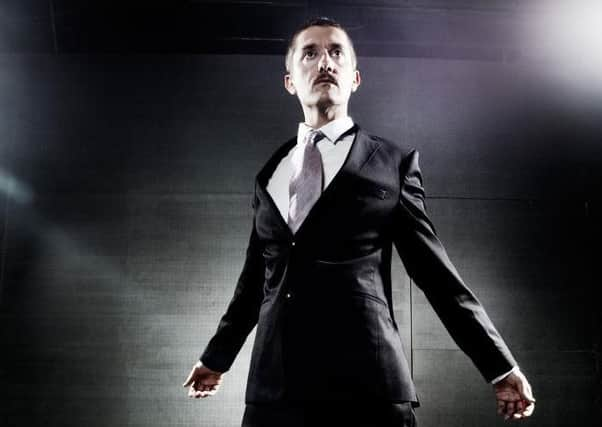

Star rating: The Rooster and Partial Memory ****
SKAL and Silent Space ***
I Am Rhythm ****
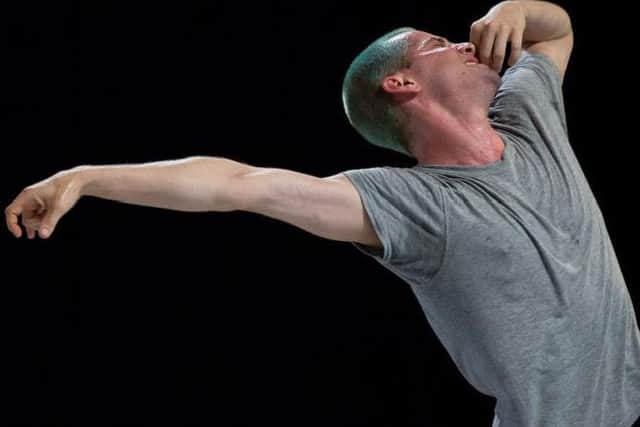

Bird ***
The End **
May We Go Round **
Lïnger ***
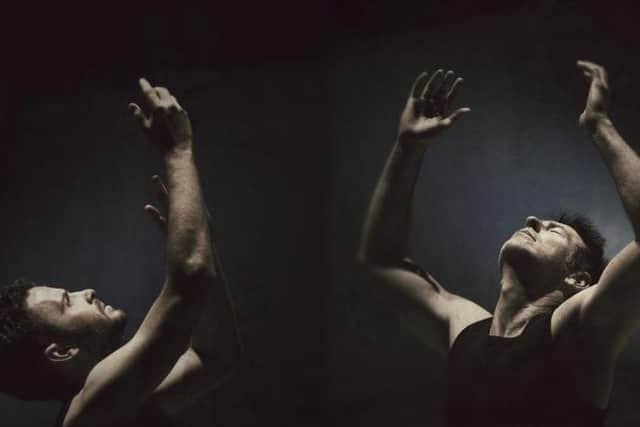

Red ***
Your Majesties ****
Venue: Dance Base (Venue 22)
If the Edinburgh Festival Fringe is a constant reminder that performance comes in many forms, then Dance Base does an equally fine job of promoting movement in all its glorious shades.
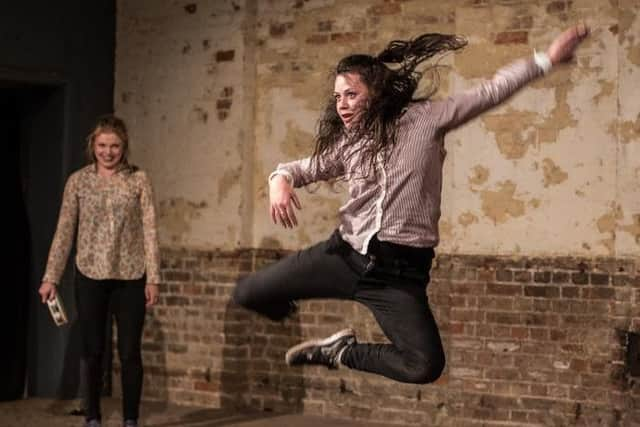

With a programme that’s larger than ever, not all of which is mentioned here, the world of dance (both geographically and as an art form) is well and truly represented at the venue. As is the stuff of life, the highs and lows, the joy and pain. Watching the double bill by Palestinian company El-Funoun, some of those lows are writ large.
Advertisement
Hide AdAdvertisement
Hide AdAs the name suggests, Partial Memory is just that – a fragment of one man’s life, a childhood remembered through a series of old photographs depicting family members, the fate of whom we can only guess at. Performer Ata Khattab tells us with the briefest of words about his father’s absence, and how as a six-year-old boy he would question his mother in confusion. When Khattab finally learned his father was in hiding from the Israeli army, it taught him a strong lesson for life – which he delivers as an almost primal scream. Clever projection and an emotive score conspire to moisten the eyes during this short but powerful work.
Inspired by a poem of the same name, El-Funoun’s The Rooster touches us in a very different way. An exploration of male power and dictatorship, five dancers fight over a “masbaha” – a long thread which signifies who is in charge. Those who have it are transformed from meek compliance into a brutal, almost sadistic state. Those who don’t are occasionally able to find joy in movement. Coupled with Partial Memory, it’s a double-bill to remember.
SKAL and Silent Space also take us to other lands – Sweden and South Asia respectively. Young hip hop dancers Pontus Linder and Olov Ylinenpää are acutely aware of the macho culture they reside in, and use the space to reflect on what masculinity means to them. It’s an enjoyable piece, with both dancers bringing a fluidity and ease to their top rock and windmills – but the theatrical interludes between the breakdance (featuring rugs, a power drill and old record player) border on esoteric, which takes the edge off slightly.
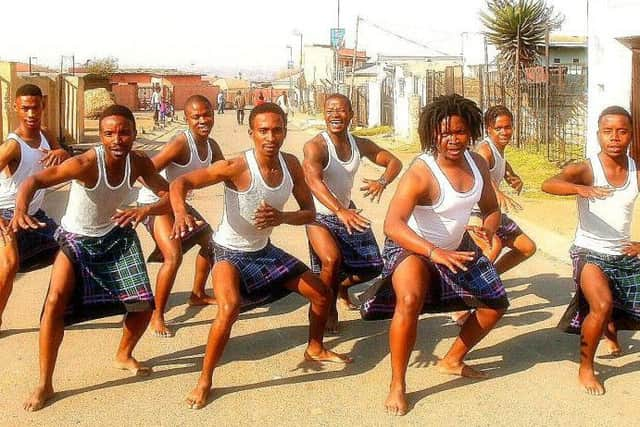

Edinburgh’s own Dance Ihayami plays an important role in building an audience for Indian dance in Scotland. This new work, Silent Space continues its quest to challenge perceptions about the form, using a range of music – classical, traditional Indian, and live flute expertly performed by Marion Kenny – which choreographer Priya Shrikumar responds to differently each time.
It’s hard to know who wears the bigger smile during I Am Rhythm, the performers or us, as After Freedom Productions build an exuberant, joyful and informative picture of South African dance history. Eight dancers from the townships of Soweto, none professionally trained, take us on a journey from early tribal dancing, through the percussive Gumboot dances of the coal mines, to more modern dancehall styles.
Sita Pieraccini plants all kinds of questions in our mind during her thought-provoking solo, Bird. Although strictly speaking, it isn’t a solo – given that superb foley artist David Pollock is sitting to one side creating all the show’s sound. His bare feet crunch on leaves as Pieraccini crosses the stage, his fingers dabble in a tray of water as she drinks, and his lips brush the microphone to depict wind, thunderstorms and the gentle tweet of the eponymous bird.
Pieraccini knows how to hold an audience, but the direction lets her down by not allowing us to fully enter her emotional world. Her internal conflict, weighing up satiated hunger versus companionship remains just that, internal.
Advertisement
Hide AdAdvertisement
Hide AdIt’s even harder to connect with Jack Webb’s The End, a piece for three dancers which holds you at arm’s length for almost its entirety. Inspired by the way we prepare and accept the end of things – life, the world – Webb’s choreography and sound choice is a fairly relentless blend of jerking repetition and rumbling engine room noise. Only briefly snatching our attention with a hypnotic, beat-driven moment of frenzied unison. The performers give their all, it’s the piece itself which gives little away.
Much the same could be said for May-We-Go-Round?, which would work brilliantly as an end of term graduation piece, surrounded by like-minded teens and early 20-somethings. But despite their strong musical choices, the two young women of the Hiccup Project don’t fashion their subjects of love, loss, rejection and longing into a piece with universal resonance. Subjects which are as memorable, whether they happened to you days or decades ago and, if played right, can hit us all head on.
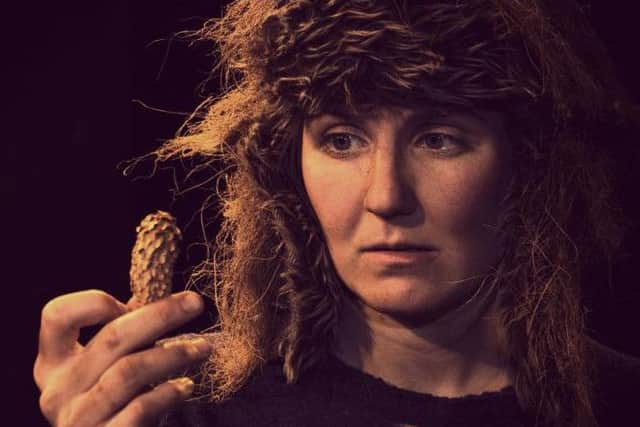

There’s no shortage of emotional intent in Ériu Dance Company’s Lïnger, if only it were wrapped in a simpler package. Ex-Riverdance principal Breandán de Gallaí has teamed up with a slightly younger dancer, Nick O’Connell to explore themes of ageing, masculinity and personal identity – all of which they do beautifully.
When the men move, be it intelligent and moving contemporary dance or energetic and precise Irish dance, it’s a sight to behold. The music, too, has been picked to perfection. But Lïnger’s bid to be theatrical, by adding in film footage and a live artist (both of which are strong in their own right) often serves to distract, rather than embellish, what de Gallaí is trying to achieve. Well worth a look, though.
Carl Knif also over-eggs the pudding slightly in his moving solo, Red. Again, Knif is a highly watchable performer, wearing his vulnerability on his sleeve to invite the audience into his world. Growing up a gay man who longed to be a dancer, in a family and community where neither was acceptable, Knif carved his own path, but retained bonds of affection for his Finnish homeland. The simplicity of his movement is broken up by prolonged use of strobe lighting, when in fact it would have been striking enough without it.
Proving beyond doubt that Dance Base is the place to find unexpected movement, is Your Majesties – a duet as unique as they come. Dressed in suit and tie, Alex Deutinger (an Austrian with an impeccable American accent) delivers Barak Obama’s speech from the 2009 Nobel Peace Prize ceremony in Oslo. A speech about war and violence which, on its own, is fascinating to listen to, especially with Deutinger’s tonal inflections.
But Your Majesties goes much further than that, because nestled in the audience on a platform, is Spaniard Marta Navaridas. From this vantage point, she pulls Deutinger’s strings, as a puppeteer would their puppet. Not literally, there are no threads in her hands – but her arms move as if there were, and Deutinger responds accordingly. All of which not only leads to interesting movement, but compels you to ask question after question about the speech itself, about war, humanity, where we’ve been and where we’re all heading.
Advertisement
Hide AdAdvertisement
Hide AdThe Rooster and Partial Memory, until 14 August. Today 2:30pm. SKAL and Silent Space, until 14 August. Today 1pm. I Am Rhythm, until 21 August. Today 4pm. Bird, until 28 August. Today 6:30pm. The End, until 21 August. Today 5pm. May-We-Go-Round?, until 14 August. Today 6:45pm. Lïnger, until 21 August. Today 7:45pm. Red, until 21 August. Today 9pm. Your Majesties, until 14 August. Today 8:15pm.